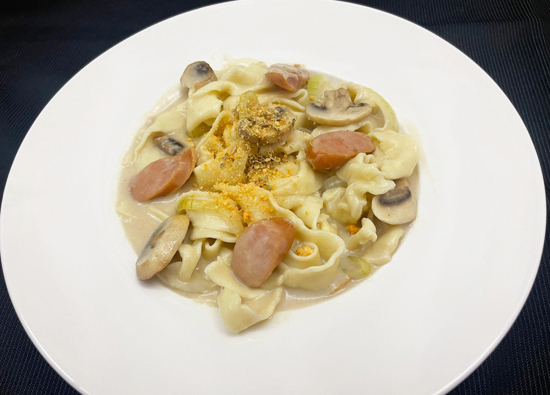09.2023 Life Guide
Mosquito Prevention Campaign
Dr. Chen Youjia, Dermatology Department of Far Eastern Memorial Hospital /

 Mosquitoes are carriers of various diseases such as Qu Gong disease, Japanese encephalitis, Zika virus infection, yellow fever, etc. They are generally bitten, ranging from itchy rashes, papules, and blisters to severe swelling of the affected area or secondary bacterial infections caused by scratching wounds, leading to honeycomb tissue inflammation and sepsis. Especially in summer, when dengue fever is prevalent, it is time for mosquito repellents to come in handy. This issue of "Health Column" provides advice on selecting mosquito repellents and the correct way to use them to help you stay away from annoying mosquitoes.
Mosquitoes are carriers of various diseases such as Qu Gong disease, Japanese encephalitis, Zika virus infection, yellow fever, etc. They are generally bitten, ranging from itchy rashes, papules, and blisters to severe swelling of the affected area or secondary bacterial infections caused by scratching wounds, leading to honeycomb tissue inflammation and sepsis. Especially in summer, when dengue fever is prevalent, it is time for mosquito repellents to come in handy. This issue of "Health Column" provides advice on selecting mosquito repellents and the correct way to use them to help you stay away from annoying mosquitoes.Entering the humid and scorching season, mosquito breeding gradually increases. In addition to regularly washing outdoor water containers and covering them, cleaning ditches and basement water accumulation areas, and installing screen windows and doors in residential buildings; It is best to wear a hat and light colored long sleeved pants for outdoor activities to avoid entering places such as grass and forests. In addition, the correct use of mosquito repellent is also one of the important mosquito prevention methods. The following are common problems with the use of mosquito repellent.
Common mosquito repellent ingredients on the market
The anti mosquito products available on the market for human skin are mainly divided into "products with a drug license and containing DEET", and "products without a drug license and containing plant essential oils and vegetable oils".
The former mainly contains DEET (N, N-Diethyl-meta-toluamide/Toetomide) components, which were developed by the US military in 1946 as insect prevention in military operations. It can interfere with the olfactory receptors of mosquitoes, making them unable to detect the human body, thereby reducing the chance of skin bites; After passing the safety inspection by the US Environmental Protection Agency, it began to be widely used in 1957. If you need to stay outdoors for a long time or if you are in an environment with many mosquitoes, it is recommended to prioritize using such products. When purchasing, it is possible to check whether the outer packaging is labeled with the Ministry of Health and Welfare approval number (Health Department Drug Production Number, Health Department Drug Delivery Number).
The latter often adds "plant essential oils" such as citronella, lemon amine, eucalyptus, camphor tree, tea tree, lavender, pomelo peel, orange peel, etc. As for the common "plant oils", there are two types: soybean oil and sesame oil. The above-mentioned topical products are general commodities and cannot be labeled or claimed for efficacy. Their mosquito prevention effect and safety have not been confirmed by Taiwan's health authorities, and their efficacy is usually unclear, The safety of long-term use also needs to be discussed.
Which is better, chemical synthesis or natural ingredients?
American dermatologist M. S. Fradin and entomologist J. F. Day collaborated to plan a human trial to test the efficacy of all mosquito repellent products on the US market, and published the results in the New England Journal in 2002. The report points out that mosquito repellents with higher concentrations of DEET have longer lasting effects, including sustained protection for 301.5 minutes with 23.8% DEET, 234 minutes with 20% DEET, 112 minutes with 6.65% DEET, and 88 minutes with 4.75% DEET. As for natural substances, soybean oil has a protective effect of 94 minutes, which is equivalent to low concentration DEET preparations; Anti mosquito products containing lemon eucalyptus oil and other ingredients have a protective effect of less than 20 minutes, while anti mosquito bracelets containing 9.5% DEET or 25% lemon eucalyptus oil have a protective effect of less than one minute.
Is mosquito repellent safe?
DEET is a highly effective and safe mosquito repellent, but all drugs have their side effects. If used improperly and come into contact with the eyes and mouth, it may cause skin itching, dermatitis, or allergic reactions; If sprayed in large quantities and at high concentrations on the skin, it may be absorbed into the blood circulation system or cause serious toxicity to nerves, heart and blood vessels, but clinical cases are quite rare. In contrast, many natural mosquito repellents have complex ingredients and unclear pharmacological effects and toxicity. If applied or sprayed on the skin recklessly, they may actually bear the risk of acute and chronic toxicity without being aware of it.
Can children use mosquito repellent containing DEET ingredients?
According to current research consensus in Europe and America, children over two months old can come into contact with mosquito repellents containing DEET, but the recommended concentration is lower than that of adults (less than 30% in the United States and less than 15% in the United Kingdom), and it is necessary to avoid hands, eyes, and mouth.
The correct way to use mosquito repellent
Mosquito repellent should be applied to the skin, not sprayed on clothes. All exposed skin should be wiped to have an effect, otherwise mosquitoes will still bite the unpainted skin. However, when wiping mosquito repellent for children, remember to avoid hands to prevent them from accidentally licking. Usually, mosquito repellent should be placed in an area that children cannot reach. After going out and returning home, it should also be cleaned immediately.
In addition, exercise, sweating, contact with water, wiping the skin with a towel, high air humidity, or rubbing clothes against the skin can all reduce the concentration of mosquito repellent on the skin, and additional wiping is necessary to maintain the effect. The time for additional wiping can refer to the product packaging instructions.
During the tense dengue fever epidemic and the start of school, parents need to carefully choose mosquito repellent products and use them correctly in order to effectively prevent mosquitoes from biting young children and reduce the threat of the disease.
Dr. Chen Youjia's expertise includes medical beauty, general skin diseases, honeycomb tissue inflammation, psoriasis, atopic dermatitis, chronic urticaria, acne, and alcoholic dermatitis.
#





















